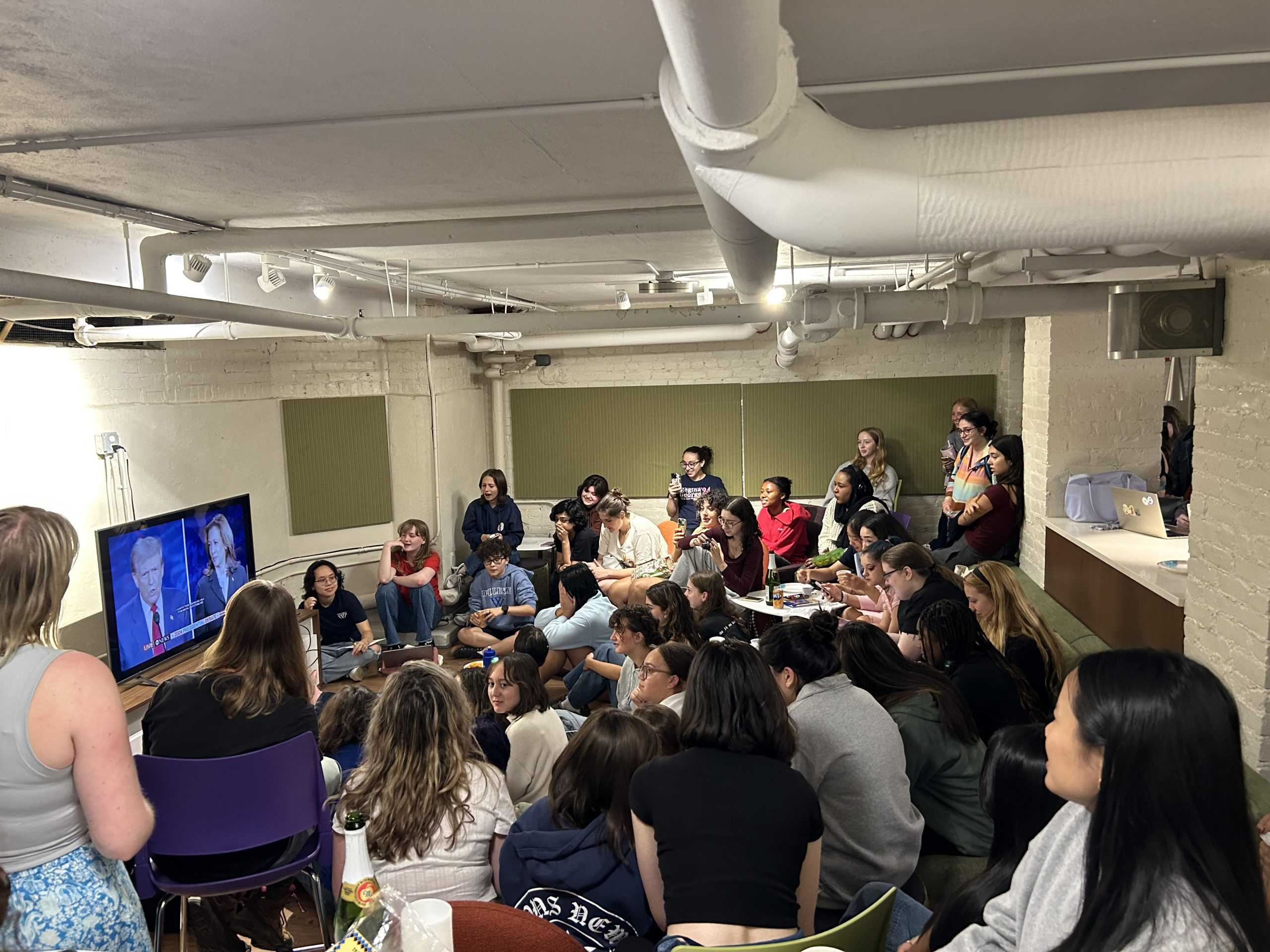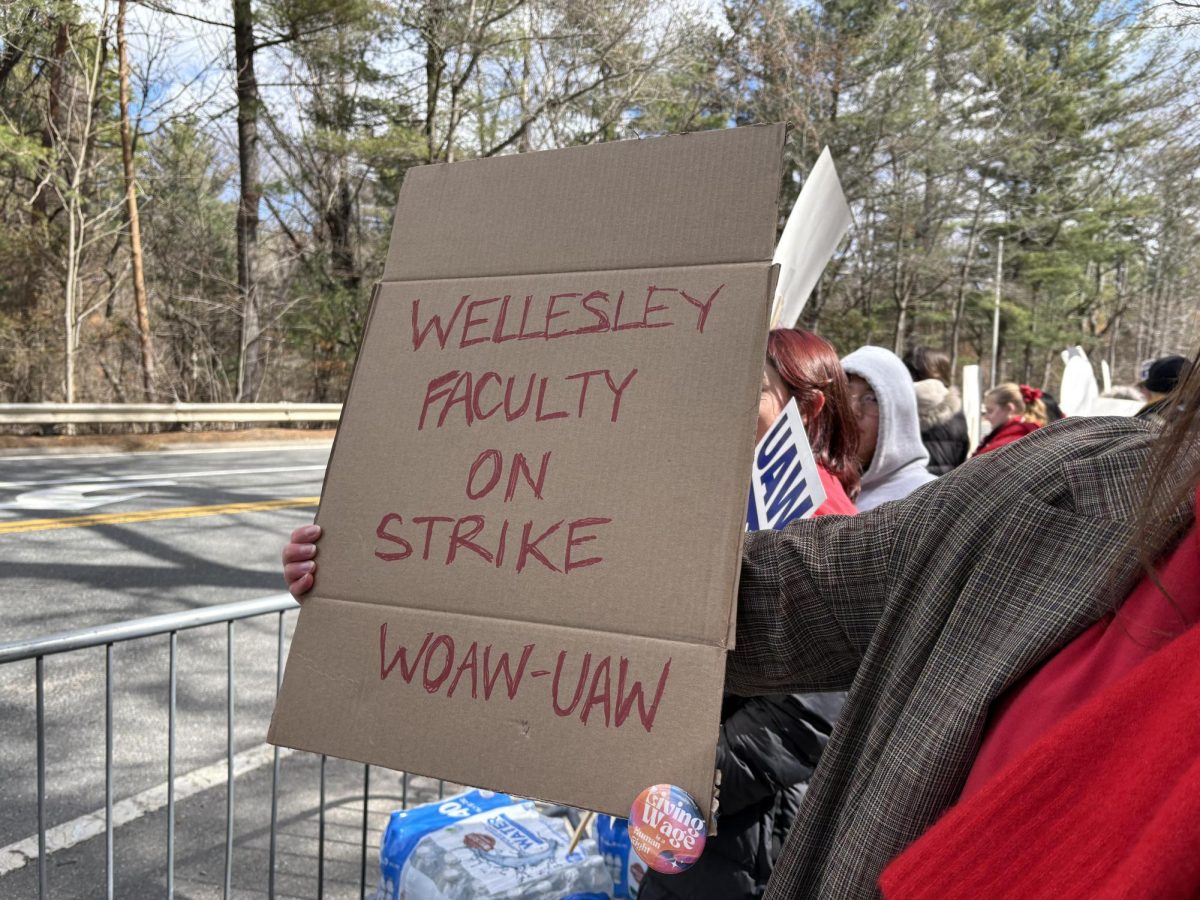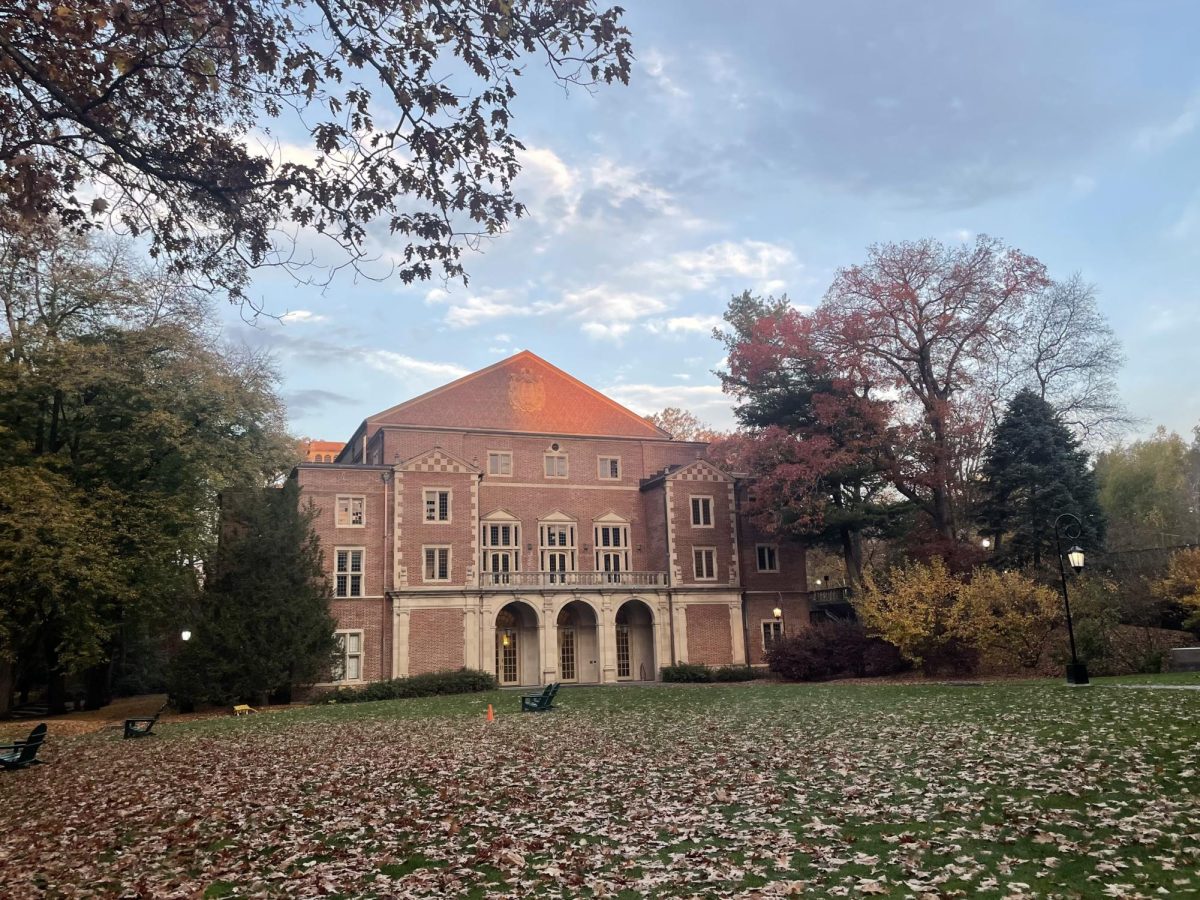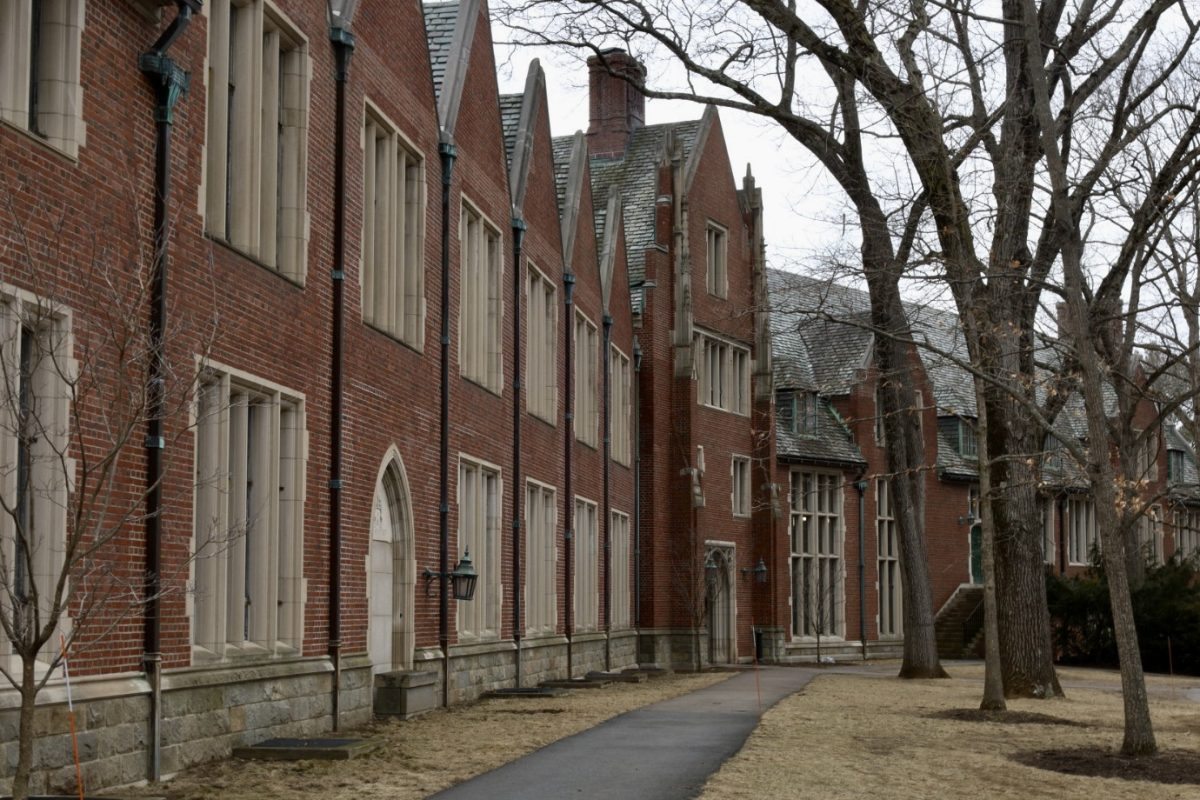Last Tuesday night, students rushed to dorm rooms and academic buildings to watch the high-stakes debate between Vice President Kamala Harris and former President Donald Trump.
Students organized several debate watch parties on campus. In Cazenove Hall, over 100 students piled into the basement for a broadcast event hosted by Wellesley College Democrats and Wellesley Students for Harris. By the start of the debate, students were standing to join the viewing party.
Grace Hennessy ’26, the president of WCD, said that students’ excitement at the event was palpable.
“I feel like we have, especially in these past few weeks as a school community, as the Democratic Party, separately as well, we’ve really been able to sort of like, turn this corner and bring a lot of joy and like passion and excitement really back into this election season.”
Wellesley College does not have an active Republican student chapter as of this year. Wellesley College Republicans last hosted an event in 2021, according to their Facebook page.
Turning Tides: Wellesley students’ political engagement rises
Wellesley students and faculty alike have noted that since the 2016 election, students’ participation in politics on campus, both in student organizations and classes, has declined.
In the wake of Donald Trump’s election in 2016, Professor Sarah Sklar, a visiting lecturer in the political science department noticed a drop in enrollment and less engaging classroom attitude from students in political science courses.
Sklar, who started teaching an introductory American politics class during the 2016 election at Boston University, said enrollment — once largely subscribed — plunged to the lowest level reported following Trump’s election.
“In 2016, there was a lot of energy in the room,” Sklar said on students’ classroom participation. “And then after the result, there was definitely a sort of shockwave that they went through the community. The next year, they were so apathetic. No one wanted to talk about anything.”
A more general sense of disengagement with politics remained after President Biden was elected in 2020. Hennessy said that in the last two years of her involvement in WCD, turnout at events hosted by the College Democrats had been lower than expected despite strong initial interests.
“I think people were feeling very dejected, unenthused,” Hennessy said. “I think people weren’t looking forward to the future, and there wasn’t a lot of hope. And so that translated, especially on campus, into a lot of indifference.’”
This year, WCD has already noticed increased engagement. Hennessy said at least 105 people signed into the debate watch party. Throughout the debate, students also participated in a postcard-writing activity spearheaded by Wellesley Students for Harris, writing messages to swing state voters encouraging them to vote.
The recent rise in student participation in election efforts is evident, according to Margaret Huai ’26, cChair of Committee for Political Engagement (CPE), the non-partisan committee of the College Government tasked with raising political awareness.
“Activism is so powerful here at Wellesley,” Huai said. “I’m really happy to see people expressing their political opinions and finding safe spaces where they can discuss and process through all these heavy political issues weighing on our generation.”
Moving forward: events and engagement
At the onset of a key election, campus organizations can act as centers for engagement and sharing resources.
WCD has more events in store ahead of the November election: a Vice Presidential debate watch party on Oct. 1 and setting up a voter resource table in Lulu Chow Wang Center on Sept. 25.
Hennessy had seen a pickup in interest where students reached out about voter registration and absentee ballots. This year, she is hopeful that WCD can answer a call on campus for resources and community; she reported that several Wellesley students have reached out to her and other WCD members about election information, from voter registration deadlines to how to get an absentee ballot.
“We don’t ever want people to feel like there’s a barrier that they can’t go through – we want to be that resource,” Hennessy said.
CPE will also work to help students navigate the “fraught nature” of the upcoming election and keep themselves “informed and engaged.”
“There’s just so much on the table, and a lot of important issues will be decided this year,” Huai said. “A lot of concerns over the economy and internal domestic tensions with increasing partisanship … have become very prevalent.”
Given CPE’s political neutrality, Huai urges students to keep themselves informed, register to vote, research candidates’ policies and beliefs, stay respectful in political discourse and volunteer as poll workers.
The CPE plans to arrange transportation for out-of-state students to vote in Massachusetts to promote direct engagement with the election.
Looking forward, Hennessy spoke to the joy that she hopes will characterize some of the season. “This is a historic election, so … obviously we want people to take this very seriously, but we also understand that there needs to be a little bit of levity and joy to this, because this shouldn’t feel like a death march for anyone.”
Contact the editors responsible for this story: Valida Pau and Sazma Sarwar






